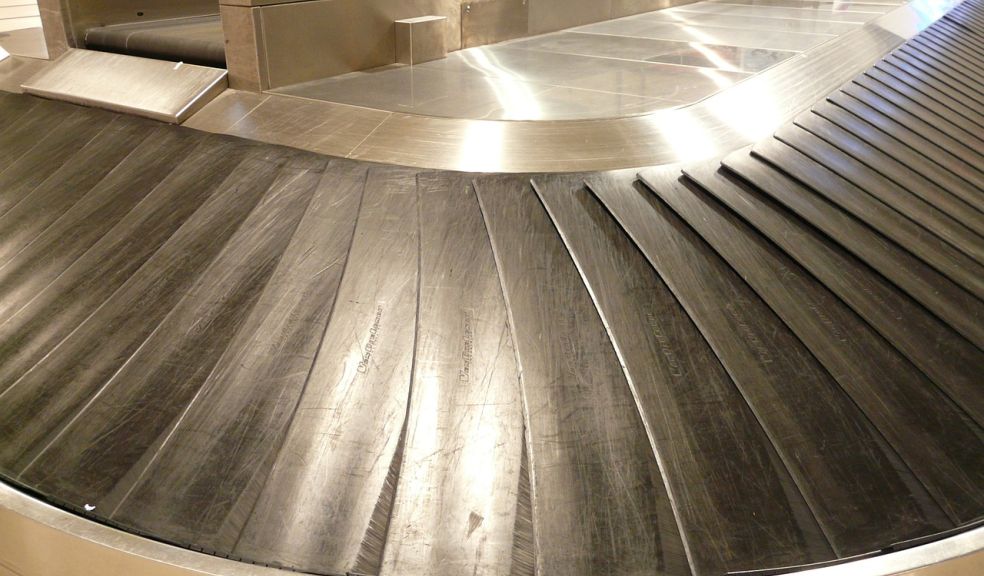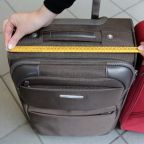
What to do if an airline loses or damages your checked luggage
Traveling can be an exciting experience, but it can quickly become stressful if you find yourself at the baggage claim carousel with no sign of your checked luggage or, worse yet, your suitcase arrives damaged. When faced with such situations, it's important to understand your rights and the procedures to follow.
Knowing what steps to take can help you mitigate the frustration and inconvenience. It's essential to act promptly by reporting your situation to the airline, as most carriers have a time limit within which you need to notify them. Keeping a copy of your luggage tags and having a comprehensive understanding of the airline's policies and proper documentation is critical in these scenarios.
If you discover that your baggage is damaged, your approach should slightly differ. You will need to conduct a baggage damage claim assessment right away, which involves inspecting your luggage thoroughly and presenting it to the airline's baggage service office, often located near the baggage claim area. Each airline may have a unique process, often requiring you to fill out a form. Depending on the extent of the damage, you might be entitled to compensation for repairs or replacement. Keep in mind that some credit cards offer additional protection and compensation for troubles with checked luggage as part of their travel benefits.
Key Takeaways
- Report lost or damaged luggage immediately to the airline's baggage service office.
- Keep luggage tags and understand your rights under the airline's policies for claiming luggage mishandling.
- Some credit cards offer travel benefits that may cover luggage issues.
Navigating Airline Policies and Procedures
When your checked luggage is lost or damaged, it's essential to know how to navigate airline policies and procedures effectively. Understanding what steps to take can help you track your baggage and secure proper compensation.
Reporting and Tracking Mishandled Baggage
In the event that your baggage is mishandled, it’s imperative to notify the airline immediately. Proceed to the baggage service office, commonly situated near the baggage claim area, and file a report. Provide them with your baggage claim ticket and any additional details that might help with locating your possessions. For instance, airlines like Delta and United Airlines offer options to report the incident in person or through their respective mobile apps.
Airlines use systems like SITA for baggage tracking, so you should receive a tracking number to follow the progress. For future reference, always keep a copy of your missing bag report. This will serve as a vital record for tracking and subsequent claims.
Understanding Liability and Compensation
When it comes to liability for mishandled baggage, be aware that the Montreal Convention or Warsaw Convention could apply, putting a liability limit on international flights. The Department of Transportation mandates that for flights covered by the Montreal Convention, the maximum baggage liability is 1,288 Special Drawing Rights, roughly equivalent to $1,700 per passenger, for lost, damaged, or delayed baggage.
Airlines like American Airlines, Southwest Airlines, and Alaska Airlines may offer varying levels of compensation and policies. In some cases, your credit card benefits or travel insurance might provide additional coverage.
For damaged luggage claims, file a damage report with the airline, and be aware that airlines often have a reporting window to which you must adhere. When seeking reimbursement, be prepared to provide receipts, especially if you’re claiming above the liability limit. Additionally, if your bags are delayed, you might be eligible for a bag fee rebate.
Understand that while airlines can't offer less than what is stipulated by official regulations, they may choose to offer more. It's also worth exploring whether purchasing excess valuation coverage at check-in might be beneficial for you, as it raises the airline's liability limit.
Tips for Travelers to Protect Their Baggage
When preparing for a journey by air, protecting your checked luggage from loss or damage is crucial. The right packing techniques and leveraging certain financial protections can make all the difference in safeguarding your belongings.
Packing and Protecting Valuables
- Valuable Items: Always carry your valuable items, such as jewelry, important documents, and cash, in your carry-on. For electronics like a laptop or cell phone, keep them with you if at all possible to prevent damage or loss.
- Fragile Items: If you must pack fragile items in your checked luggage, use bubble wrap and secure them in the center of your suitcase, surrounded by soft clothing for additional protection. Consider tagging your bags with an AirTag or another GPS tracker for easy location in case they are misplaced.
Leveraging Credit Card and Insurance Benefits
- Travel Insurance: Secure travel insurance that includes baggage insurance in case your luggage is lost or damaged. Read the terms carefully to ensure electronics and assistive devices are covered.
- Credit Card Benefits: Many travel credit cards, like the Chase Sapphire Reserve, offer credit card benefits that include baggage delay and loss protection. Check your card's policy before your trip and use it to book your ticket to activate these benefits.
By taking these measures, you can travel with peace of mind, knowing you've taken steps to protect your checked luggage.
Conclusion
Dealing with lost or damaged checked luggage can be a frustrating experience, but knowing your rights and the appropriate steps to take can mitigate the stress involved. Promptly reporting the issue to the airline and filing the necessary claims are crucial. It's important to remember that airlines have a maximum liability, which sets the reimbursement limit for your belongings. Keeping documentation, such as your boarding pass, and baggage claim tickets, organized will support your case. Always follow up on your claim to ensure you receive the compensation you're entitled to.
















